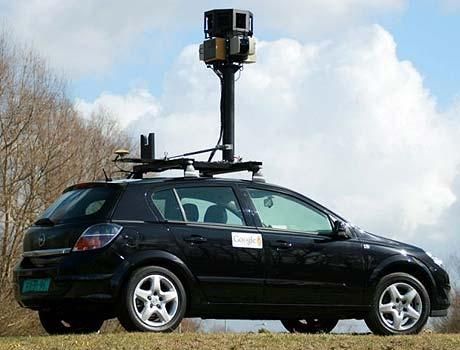BRASïLIA – Brazilian judges have given US Internet search giant Google until Saturday to turn over private data collected through its Street View program, press reports said Thursday.
Failure to do so would mean a daily fine of $50,000, up to a maximum of $500,000.
Google equips cars with cameras and antennas to take photos of streets and houses, which are later posted to a feature in its maps program called Street View.
The photos are pieced together online to create a map that a person on a street would see.

According to a complaint from the Brazilian Institute of Computer Policy and Rights (IBDI), the car-borne software also enables Street View to access private wi-fi networks and intercept personal data and electronic communications.
IBDI pointed to similar occurences in other parts of the world and demanded that Google reveal if it had engaged in such practices.
It said Google had admitted collecting data while insisting they were not used “in its products and services. The US search engine stressed that it had now removed the data collection software from its vehicles.
The case followed press disclosures, based on documents leaked by US intelligence leaker Edward Snowden, of massive US cyberspying in Brazil.
Targets included President Dilma Rousseff’s communications, those of state-run energy giant Petrobras and emails and telephone calls of millions of Brazilians.
Google has denied any link to the US electronic snooping, mainly conducted by the powerful National Security Agency (NSA).
But files obtained from Snowden, who is in exile in Russia and sought by US authorities for violation of espionage laws, indicated that NSA can collect data sent by fiber optic cable between Google and Yahoo data hubs.
Google told the court the debate on data collection took place in several countries some time ago and was now closed.
It did admit that its software can intercept signals from open wi-fi networks.
Google also said it had been in contact with authorities of countries where these incidents occurred, but in the case of Brazil there was no relevant legislation nor a regulatory body.
Google and other leading tech companies have expressed opposition to the creation of Brazil-based databases of local customer information, as proposed by Brasilia in a bid to combat foreign spying.
Google says in principle it backs proposed legislation enshrining an Internet civil rights framework, dubbed Marco Civil de Internet in Brazil.
But it has warned that a proposed amendment to Marco Civil requiring Internet firms to store Brazilian user data in Brazil “risks denying Brazilian users access to great services that are provided by US and other international companies.”
Related: Hacker Uses XSS and Google Street View Data to Determine Physical Location












